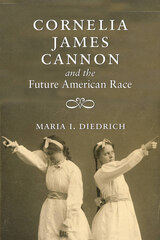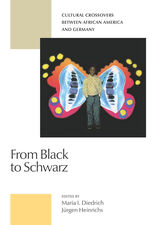
After a long and painful transatlantic passage, African captives reached a continent they hadn’t even known existed, where they were treated in ways that broke every law of civilization as they understood it. This was the discovery of America for a good number of our ancestors, one quite different from the “paradise” Columbus heralded but no less instrumental in shaping the country’s history. What finding the New World meant to those who never sought it, and how they made the hostile, unfamiliar continent their own, is the subject of this volume, the first truly international collection of essays on African American literature and culture.
Distinguished scholars, critics, and writers from around the world gather here to examine a great variety of moments that have defined the African American experience. What were the values, images, and vocabulary that accompanied African “explorers” on their terrifying Columbiad, and what new forms did they develop to re-invent America from a black perspective? How did an extremely heterogeneous group of African pioneers remake themselves as African Americans? The authors search out answers in such diverse areas as slavery, the transatlantic tradition, urbanization, rape and lynching, gender, Paris, periodicals, festive moments, a Berlin ethnologist, Afrocentrism, Mark Twain, Spain, Casablanca, orality, the 1960s, Black–Jewish relations, television images, comedy, and magic. William Wells Brown, Frank Webb, W. E. B. Du Bois, Alain Locke, Zora Neale Hurston, Richard Wright, Etheridge Knight, Ishmael Reed, Toni Morrison, Gloria Naylor, and Charles Johnson are among the many writers they discuss in detail. The result, a landmark text in African American studies, reveals, within a broader context than ever before, the great and often unpredictable variety of complex cultural forces that have been at work in black America.

According to Maria I. Diedrich, it was the last of these concerns, Cannon's interest in what she and her husband called "the future of the race"—a term conflating ideas of class, race, and ethnicity—that inspired many of her varied reform activities. From the vantage point of today it may seem hard to understand how a social reformer and outspoken feminist could also embrace eugenicist principles. Yet, in the context of the time such views were not uncommon among progressive thinkers.
Far from being an extremist or even exceptional, Cornelia James Cannon was a woman representative of her social class and historical moment. By disentangling the threads of Cannon's life and thought, Diedrich seeks to shed light on the experiences of other progressive reformers of the interwar years whose interest in social justice often went hand in hand with racially exclusive notions of Americanness.

READERS
Browse our collection.
PUBLISHERS
See BiblioVault's publisher services.
STUDENT SERVICES
Files for college accessibility offices.
UChicago Accessibility Resources
home | accessibility | search | about | contact us
BiblioVault ® 2001 - 2024
The University of Chicago Press









